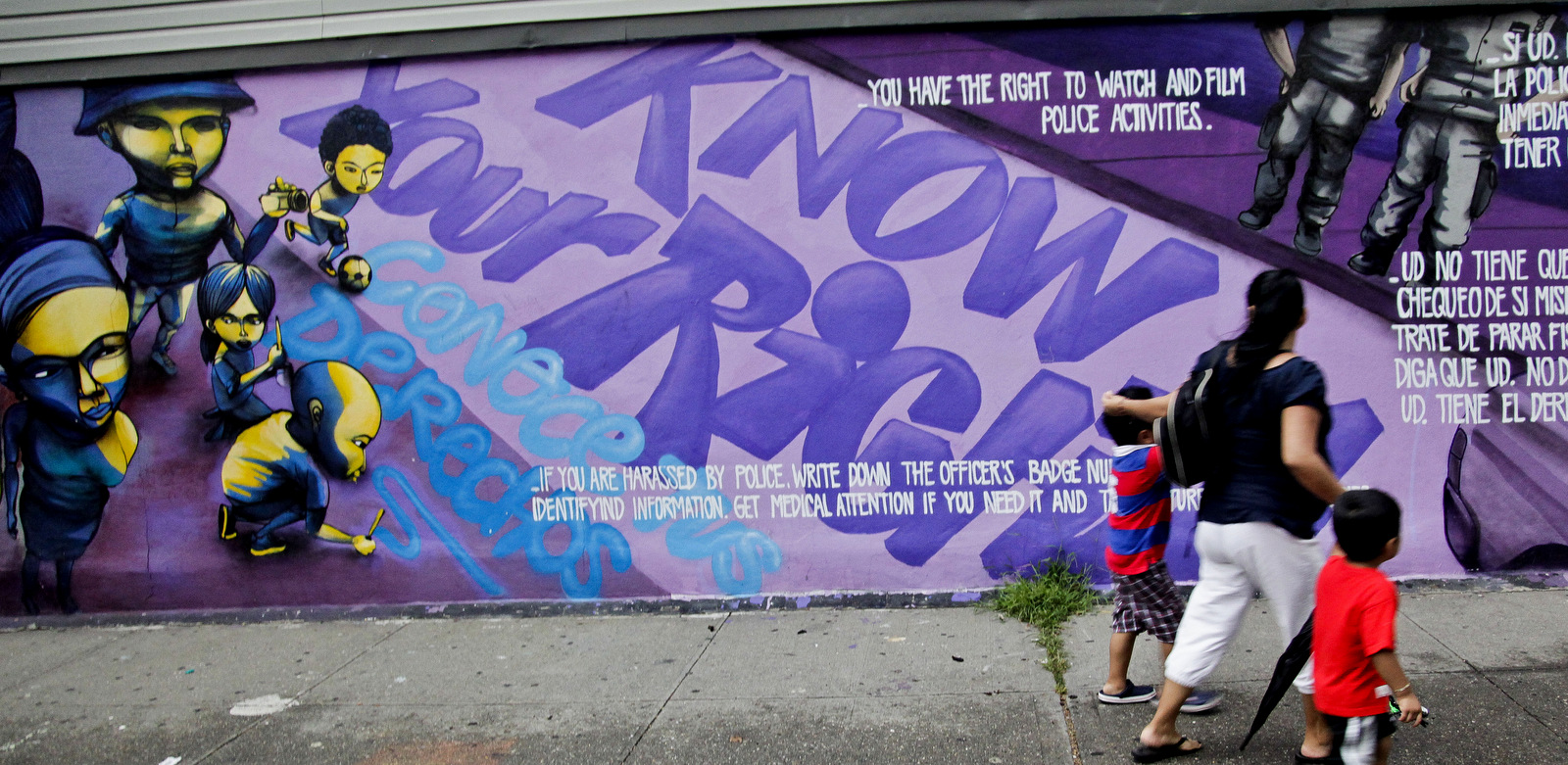New York City police officers detain and question a man,, July 11, 2017, in the Bronx borough of New York. (AP/Mark Lennihan)
EW YORK – A couple of weeks ago ProPublica noted that 2017’s murder rate in New York City was down to 291, the lowest since the 1950s. That number is noteworthy in and of itself, but also because of the context in which it occurred: the number of “stops” and “frisks” employed by the NYPD. About 10,000 people were stopped and frisked — checked for weapons, illegal substances, or outstanding warrants – on the streets of New York in 2017. At its height six years earlier, the total was 700,000. The number of people stopped by police dropped but crime didn’t go up. And this was not the first time.
A few months after the explosion of the Black Lives Matter (BLM) movement onto the national scene in August of 2014, two NYPD officers would be gunned down that December. This was the first incident to bring swift condemnation of the group as being anti-cop and advocating for the killing of police officers. As a protest against that movement (stated as concern for officer safety) and the perception that New York City Mayor Bill de Blasio was not supportive of NYPD, officers staged a “work slowdown” with the following effects:
- Overall arrests down 66 percent for the week starting Dec. 22 compared with the same period in 2013
- Citations for traffic violations fell by 94 percent, from 10,069 to 587, during that time frame
- Summonses for low-level offenses like public drinking and urination also plunged 94 percent — from 4,831 to 300
- Parking violations dropped by 92 percent, from 14,699 to 1,241
- Drug arrests by cops assigned to the NYPD’s Organized Crime Control Bureau — which are part of the overall arrest number — dropped by 84 percent, from 382 to 63.
Less was more

A woman and children walk past a street mural depicting individual rights during a “Stop and Frisk” on in New York. (AP/Bebeto Matthews)
As the Los Angeles Times noted last year, a study in the journal Nature Human Behaviour, which looked at NYPD statistics from 2013 through 2016, concluded that during the weeks of the “work slowdown” — from late December 2014 through January 16, 2015, when officers resumed full duties — complaints of major crimes had dropped by as much as 6 percent:
Each week during the slowdown saw civilians report an estimated 43 fewer felony assaults, 40 fewer burglaries and 40 fewer acts of grand larceny. And this slight suppression of major crime rates actually continued for seven to 14 weeks after those drops in proactive policing — which led the researchers to estimate that overall, the slowdown resulted in about 2,100 fewer major-crimes complaints.”
Despite the worst fears and predictions of many, anarchy, mayhem, and murder did not envelop New York. One explanation for this is that stop-and-frisk was never really about crime at all but a continuation of racist intimidation of the city’s Black and Brown population. According to the New York ACLU (NYCLU),
[I]nnocent New Yorkers have been subjected to police stops and street interrogations more than 5 million times since 2002, and … black and Latino communities continue to be the overwhelming target of these tactics. Nearly nine out of 10 stopped-and-frisked New Yorkers have been completely innocent.”
“Innocent” — as in, no weapons, illegal substances, or warrants were found on those who were detained.
To further underscore that point, the NYCLU stated in 2011 (the year of the highest stop-and-frisk detentions) that “the number of stops of black men between the ages of 14 and 24 (168,126) exceeded the total city population of black men in that age range (158,406).” Yep, the NYPD made more stops of young black men than the total number of young black men in New York.
Some voices actually lauded the sudden drop in police aggressiveness, noting that quality-of-life crimes — such as public urination, drunkenness and subway fare evasion — while unpleasant, do not pose a mortal danger to society or serve as a gateway to a dystopian police state.
Additionally, there have also been those who maintain that police actually don’t keep communities safe. Groups like Chicago’s Black Youth Project 100 (BYP100) argue that true community safety should focus less on “police forces, military grade weapons, high-tech surveillance, jails, and prisons.” BYP100 explains:
The choice to invest in punitive systems instead of stabilizing and nourishing ones does not make our communities safer. Study after study shows that a living wage, access to holistic health services and treatment, educational opportunity, and stable housing are more successful in reducing crime than more police or prisons.”
If, as noted above, stop-and-frisk was never really about crime at all, and if, as BYP100 argues, true community safety lies in reliance not on punitive options but on “stabilizing and nourishing ones,” perhaps what is actually needed is less force and more fairness.